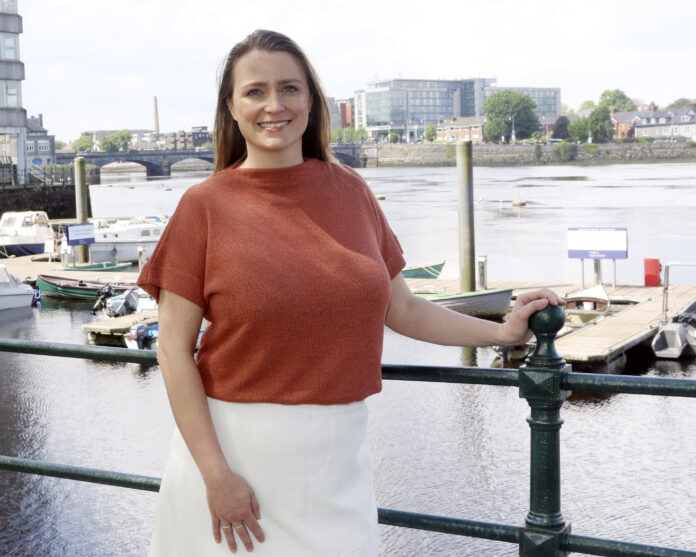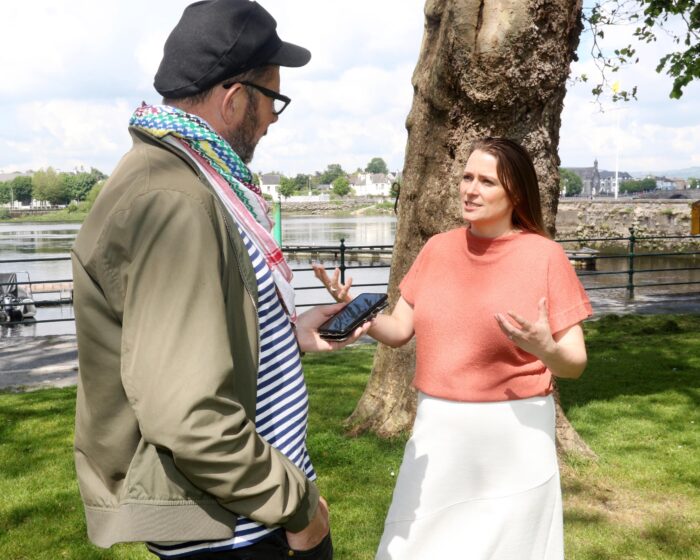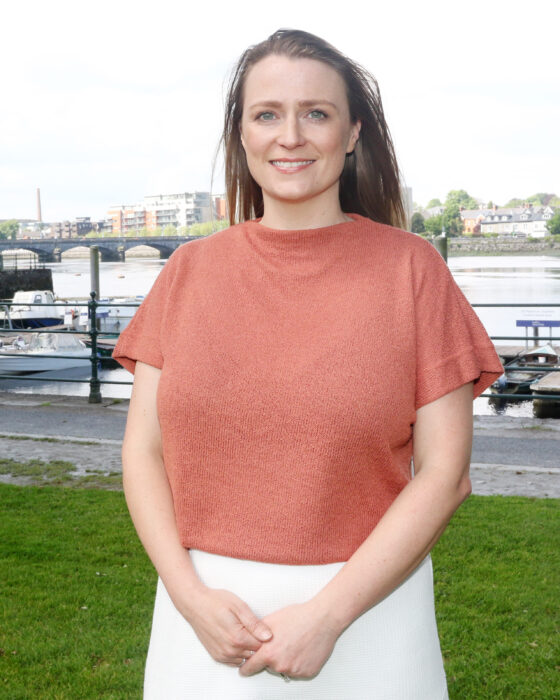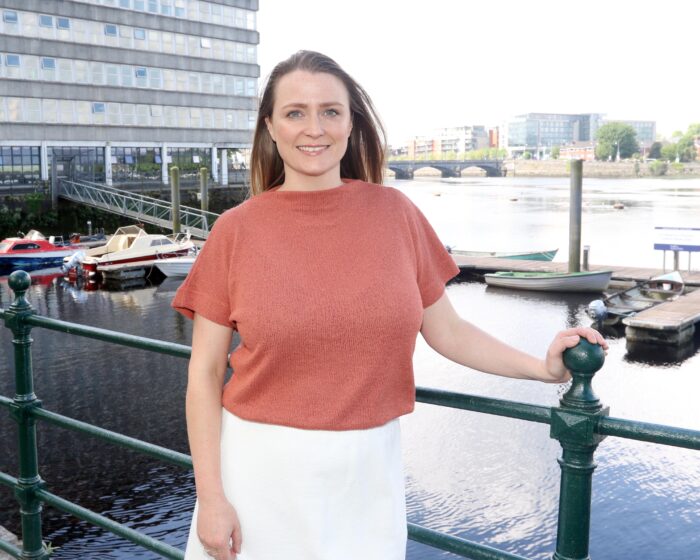
THE Limerick mayoralty is in the blood of Rabharta’s mayoral candidate, Dr Laura Keyes. A senior public health investigator and university lecturer, the North Circular Road woman is great granddaughter of Michael Keyes, considered one of the most significant Limerick mayors of the twentieth century, serving 1928 to 1930.
A Labour politician, Michael was the first Limerick man to become a member of the Cabinet since independence in 1922, and served as Minister for Local Government from 1949 to 1951 and Minister for Post and Telegraphs from 1954 to 1957.
And Laura’s impressive mayoral lineage doesn’t end there.
Her grandfather, Christopher Keyes, was Mayor of Limerick from 1957 to 1958.
Dr Laura Keyes herself though, even without her historical mayoral connections, is a very impressive figure in her own right.
Laura, who holds a PhD in public health and a fellowship in epidemiology, believes in a person-centred approach to leadership and that politics and decision-making should be transparent. She has made accessibility and inclusivity a core part of her campaign.
Currently working as a senior leadership manager in the public sector, where she works to drive improvements in health and social care services, she told the Limerick Post that she is offering an alternative to the top down approach to politics.
“People don’t want any more of the status quo. They want something else. We’re an established party. We do things very, very differently. We put people’s voices at the centre of decision-making with the party, from workers and carers.”

Earning her credentials
So what does Dr Keyes have to offer?
As a public health scientist, she tells me, she brings extensive expertise in problem solving and evidenced-based decision making.
Having spent most of her career co-ordinating large-scale programmes, developing strategy and working with the public, national organisations, and government departments to design positive change, Laura maintains that she has what it takes to be Limerick’s first directly-elected mayor. She also believes that the new role would see her putting people at the centre of decision making if elected.
“To me it’s not about consulting with people or listening, it’s actively engaging two-way involvement, bringing people in and being involved in the decisions that impact them. I truly believe that Limerick people know best what they need and how to get it,” she said.
A former student of Salesians Primary School and then Laurel Hill Coláiste, Laura pursued her undergraduate degree in nutritional sciences in University College Cork and continued to achieve a PhD in public health.
Following completion of her PhD, she was selected for a three-year fellowship in Cambridge University in epidemiology and leadership, where she led projects including the evidence base for the UK sugar sweetened beverage policy and sat on the national think tank committee for food security.

After taking up a senior lecturing position in Manchester, she oversaw the suite of Masters programmes in nutrition and dietetics and led the Departmental Research Hub.
Laura also secured £2.2m in funding for a research project with the Baka tribes in Cameroon, aimed at increasing food security and improving health in the region.
Following the birth of her second child, Laura moved home to Limerick. She took a senior leadership position in the public sector and moved into strategy development and planning roles where, among other projects, she led on the development of the framework for measuring impact of national interventions and methods for public engagement in national projects.
She is currently leading a research programme aimed at improving social care services across Ireland and is Ireland’s representative in the international health and social care regulation research consortium.
She has also secured over a quarter of a million euros in funding to undertake a first-of-its-kind project to convert routinely collected regulatory data into an open access database. She believes that information collected with public money should be accessible to everyone. This model, she tells me, is now the gold standard for regulators internationally and won the 2023 Irish Health Care Centre Awards for Best use of Technology.

‘I have lived experience of disability’
Diagnosed with multiple sclerosis in 2021, Laura learned to adapt to her new way of life, experiencing firsthand the inaccessibility of the world, the lack of supports for people with disabilities, and the vital role of carers in society.
“I have lived experience of disability. When I was diagnosed, I suddenly realised how inaccessible the world is to people with disabilities. Now I thought before that I knew because I had worked in the discipline for a long, long time. I really thought that I knew, but I didn’t until I had that lived experience,” she confesses.
“It’s everything from walkways to getting the bus to toilets and changing spaces. We’re so far behind in Limerick, even though we have a higher percentage of people with disability in Limerick than the national average – 23 per cent of people in Limerick live with a disability.”
Driven by her own experiences, the need she saw through her daily work, Laura joined Rabharta four years ago as she wanted to be a voice for people with disability, carers, and at-risk groups.
Since joining she has worked tirelessly in party’s communications and programmatic groups and was elected to the National Executive Committee in November 2023. She recently co-ordinated the party’s response to the government green paper on disability allowance reform.
“I want to underpin all actions with accessibility and universal design, which will be the first thought in things, not an afterthought. If we bring around a culture of thinking about accessibility first, we can design for the least able, and when we do that, everybody benefits,” she says.
“For me, I have relapsed remit. I am absolutely fine. If it gets very hot I might need my walking stick, which is more about balance. The impact for me is the infusion that I get to control it, and it’s absolutely brilliant, but it makes me immunocompromised for a few weeks so then I have to be very careful about my interactions. That can be a bit socially isolating, but I’m doing incredibly well. There has been such leaps forward in the drugs for multiple sclerosis in recent years and I’ve been a benefiter of that.”
She says she was unable to access a vaccine during the Covid pandemic period.
“I actually became temporarily paralysed, so I was wheelchair bound,” she said.
“Then I was eventually up on two crutches and it took me six months of physical rehab. That was incredibly challenging. It’s not just about getting around, it is the loss of independence. “Even things like getting the train, you’re dependent on somebody else to come and wheel out the ramp for you, and you have to wait on the train, which really singles you out as being different, which isn’t okay.”


